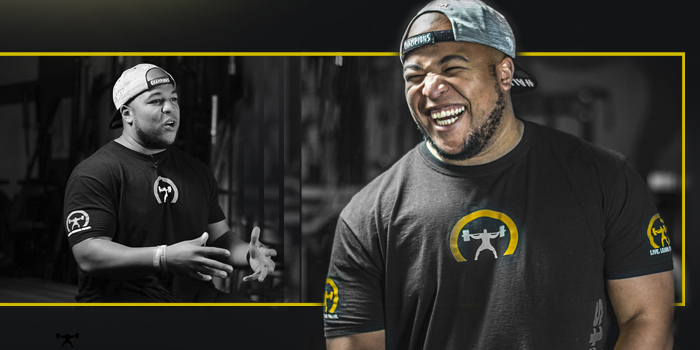
Everyone knows the old adage about failure: "Don’t fear failure. Accept it as something that happens to everyone in life and learn from it." I simply cannot agree with that. Not because I claim supremacy over others who have failed but, plain and simply put, because I hate to fail. Now, this isn’t to say my hate is blinding. I have learned from each and every one of my failures. I take time to reflect on why I failed. I have taken time to reflect on my failures in order to avoid the same treacherous mistakes again and again. So why do I say hate failure? Because if you hate to do something, chances are good that you will take all the necessary precautions to avoid doing it again.
Failure isn’t a phenomenon. Many people fail and fail all the time. To me, failure is an average event on par with flunking a math test (which I have done my fair share of). So to me, fearing failure isn’t a factor in becoming great. I’ll use an example that’s close to home. I am allergic to bees, so I turn into a giant coward anytime I see a bumblebee or a hornet. I use every ounce of my being to avoid any bees out of my fear of being stung. This has allowed me to never get stung and to also look like a fool running away from bees. You would think since I’ve never been stung I have conquered the obstacle that bees present to me. This is not the case. On the contrary, because failure is an average event that occurs multiple times in the span of a human life, I am eventually going to get stung. It is going to happen to me.
RECENT: In-Season Training: Communication, Trust and Buy-In
By fearing or avoiding getting stung, I haven’t properly been prepared for what happens when I do eventually get stung. And when you fear something, once it does happen you will probably fear it even more than you did before. My lack of preparation will lead to serious and maybe even dire consequences. When that happens, my fear of being stung will be elevated to new heights. I will double my avoidance and thus infinitely decrease my preparation. On the flip side, I hate swimming. Why do I hate swimming? Because I nearly drowned once as a young child. I, therefore, took that hatred of drowning and did something: I learned to swim enough to never drown again. In my hatred, I learned to properly prepare myself to overcome a previous failure (not being able to swim).
Image credit: Wavebreak Media Ltd © 123RF.com
A lot of people will tell you that hate is a very strong word and that you shouldn’t use it. I agree, and that is why I save it for failure. If you hate failing, it doesn’t mean you won’t fail; it means you do not allow failure to control you. You don’t accept this average occurrence as part of life. We praise those that hate to lose but then chalk up failure as an inevitable occurrence. Why? Why can’t we hate to fail? Why can’t we hate failure so much that we meet it face-on and punch it in the mouth rather than accept it as a learning experience? Just as in competition, you won’t win every battle. But if you hate to lose, you will prepare to win. And if you hate to fail, you will prepare to succeed. If failure is the enemy then it is inevitable that you will see this enemy. But once you see your enemy you will begin to know it. And once you know your enemy you can prepare to beat your enemy.
There is not a fiber in my body that is afraid to make mistakes, but I still hate making them. So I prepare myself. In doing so, I eliminate the probability of making a mistake. I have met my enemy before. Now that I know my enemy, I prepare every day to beat it. I could say that everyone fails sometimes, but to me, this is accepting average. To me, it is like losing a game and saying that everyone loses sometimes. That is not the standard you should choose to model your life by. Our culture has made it acceptable to fail. If failure is an average occurrence then saying it is okay to fail is admitting that it’s okay to be average. Preparation negates failure. And if failure does occur, the preparation has to be strengthened. This is when you have your Kairos moment when you observe, reflect, discuss, plan, hold yourself accountable, and then act.
Now, do not think I’m saying you can never fail. Everyone can. Remember, it’s an average occurrence. I’m not saying not to learn from your failures. As stated earlier, you must know your enemy to beat your enemy. What I’m saying is that if you hate to fail you will prepare not to. If you look at all great wars, there are those who succeeded and those who failed. When considering your life in that context, you would say the brave men and women won because failure simply was not an option. How did they beat failure? Tireless hours of preparation. Failing was not something they could do, as they had people that relied on them. Your athletes rely on you. I would hate to let any of my athletes down, so I prepare tirelessly. Letting them down—failing them—is simply not an option. So am I saying to never fail? No. Hate failure and you will prepare better not to fail. Because failure, an average occurrence, is not an option.












How can we make our athletes buy in to "Don't Fear Failure?" There are so many variables that happen in a game even if we play great and still lose. How can we change their attitude to hate failure but still learn from it?
Thanks,
Ethan
First, I couldn't agree with you more. That being said, I'm working right now with a severely overweight individual who is trying to lose weight and I feel like there's another component of this. You speak to a competitive spirit that most people on this site have and therefore it's true to this audience. But this client doesn't accept failure, nor does he approach his life in a way to defeat the prospect of failure. He instead loses self control and fails (by eating a tub of ice cream for instance) and then goes into a deep depression due to this failure. Depression is a deep hole to climb out of. Arguably he hates this failure. But how do I as a coach inspire him to not let it get the best of him and instead, "strengthen his preparation for failure?"